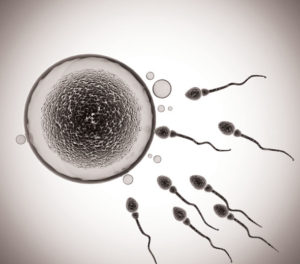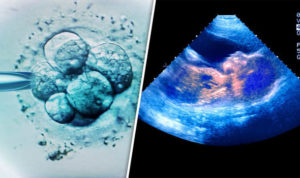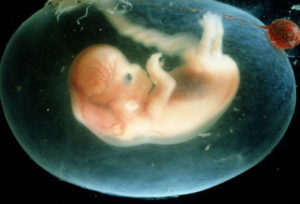“It was a long road of tryingÔÇöand losingÔÇöbefore we explored IVF. My journey towards motherhood was very harsh and rough. From clinical medicines, homoeopathy to divine powers I tried everything, but the result was always disheartening.┬á After tests, it was confirmed that there was a blockage in my fallopian tubes, which was likely the reason we were not able to enjoy the parenthood. We had been married for seven years and IVF was only the option if I wanted to become pregnant with my own healthy child and carry it to term.
There was hope. My husband and I moved out the states in the hope of having our own baby. We collected money by selling my gold jewelry and some assets. This was our last chance. The doctor assured us that with the help of IVF we can have our own baby.
 I started medication (hormone medicine) for about a month before my operation. After examination doctor declared that I was completely fit for the procedure and today I am blessed with twins. IVF has truly played wonders in my life. Everyone I know who’s gone through IVF has had their own unique experience. I wish IÔÇÖd been more open to talking about it during the first round, but I didnÔÇÖt want anyone to know.ÔÇØ
I started medication (hormone medicine) for about a month before my operation. After examination doctor declared that I was completely fit for the procedure and today I am blessed with twins. IVF has truly played wonders in my life. Everyone I know who’s gone through IVF has had their own unique experience. I wish IÔÇÖd been more open to talking about it during the first round, but I didnÔÇÖt want anyone to know.ÔÇØ
What is IVF?
In-vitro fertilization (IVF) is a type of assistive reproductive technology (ART). It involves retrieving eggs from a womanÔÇÖs ovaries and fertilizing them with sperm. This fertilized egg is known as an embryo. The embryo can then be frozen for storage or transferred to a womanÔÇÖs uterus. The eggs are fertilized either by placing sperm on the eggs or by injecting a single sperm into each egg using a technique referred to as ‘intracytoplasmic sperm injection’ (ICSI).
Depending on the patient’s situation, IVF can use:
- Your eggs and your partnerÔÇÖs sperm
- Your eggs and donor sperm
- Donor eggs and your partnerÔÇÖs sperm
- Donor eggs and donor sperm
- Donated embryos
Success Rate:
The success rate of IVF varies. According to the medical researches the live birth rate for women under age 35 undergoing IVF is 41 to 43 per cent. This rate falls to 13 to 18 per cent for women over the age of 40.
IVF Benefits:
IVF helps people with infertility. During this procedure; a doctor transfers sperm directly into a womanÔÇÖs uterus.
Infertility issues for which IVF may be necessary include:
- Reduced fertility in women over the age of 40
- Blocked or damaged fallopian tubes
- Reduced ovarian function
- Endometriosis
- Uterine fibroids
- Male infertility, such as low sperm count or abnormalities in sperm shape
How is IVF Performed?
IVF procedure includes five steps:
- Stimulation: During each menstrual cycle woman produces one egg. But, IVF requires multiple eggs as the chances of developing a viable embryo during multiple eggs are high. During the stimulation step, you will be given fertility drugs to increase the number of eggs your body produces. Your doctor will perform regular blood tests and ultrasounds to monitor the production of eggs and to let your doctor know when to retrieve them.
- Egg retrieval: Egg retrieval is a surgical procedure performed with anesthesia. With the help of an ultrasound, doctor will guide a needle through your vagina, into your ovary, and into an egg-containing follicle. The needle will suction eggs and fluid out of each follicle.
- Insemination: This is the most crucial stage of IVF. Here semen sample is collected from the male partner. After collection, the sperm is fused with female eggs in the lab. If that doesnÔÇÖt produce embryos, your doctor may switch to use ICSI (intracytoplasmic sperm injection).
- Embryo culture: Your doctor will monitor the fertilized eggs to ensure that theyÔÇÖre dividing and developing. After that, embryo is sent for testing to measure their genetic conditions.
- Transfer: This is the final stage of your IVF. When your embryos are big enough and healthy they can be implanted. This normally occurs three to five days after fertilization. The embryo is implanted into a female vagina through a thin tube called a catheter. After releasing embryo into your uterus, a blood test will determine your pregnancy.
Complications:
Along with good news, IVF can bring complications too . Some of the risks are mentioned below:
- Miscarriage (pregnancy loss)
- Ectopic pregnancy (when the eggs implant outside the uterus)
- Ovarian hyper-stimulation syndrome (OHSS), a rare condition involving an excess of fluid in the abdomen and chest
- Bleeding, infection, or damage to the bowels or bladder (rare)
- The risk of low birth weight and premature birth
Tips to increase IVF success:
- Eat healthy and nutritious
- Exercise regularly
- Keep your mind stress-free
- Avoid uplifting healthy weight
- Keep your body hydrated
Take Away:
 Making the decision to do in-vitro fertilization (IVF) is both exciting and nerve-wracking. Never lose hope if your IVF is not successful in the first attempt. Talk to your doctor extensively to determine what your best options are and if in-vitro fertilization is the right path for you and your family. Seek a support group or counselor to help you and your partner through this process.
Making the decision to do in-vitro fertilization (IVF) is both exciting and nerve-wracking. Never lose hope if your IVF is not successful in the first attempt. Talk to your doctor extensively to determine what your best options are and if in-vitro fertilization is the right path for you and your family. Seek a support group or counselor to help you and your partner through this process.
May you hear good news soon, good-luck…

